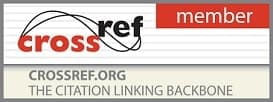Printed Journal | Refereed Journal | Peer Reviewed Journal
Development of desirable sport management competencies
Development of desirable sport management competencies
Author(s): Dr. Suresh Kumar
Abstract: Sports management is the art of managing sports-related organizations and events. It encompasses a wide range of activities, including event planning, marketing, sponsorship, and media relations. Sports managers work with athletes, teams, and organizations to help them achieve their goals. They also play a role in developing new sports initiatives and programs. In this blog post, we will discuss the growth of sports management in India, the role of sports managers in driving this growth, and the skills and qualifications needed for a career in sports management. We will also discuss the career opportunities available in sports management and the future of sports management in India. Research suggests that sport management competencies are universal and have remained relatively stable over time (Cuskelly & Auld 1991; Danylchuk & Boucher, 2003; Horch & Schutte, 2003; Lambrecht, 1991; Quain & Parks, 1986). In addition to emphasizing competencies required to perform traditional tasks such as personnel management and planning, today’s business world places increased importance on communication skills, communication technology, and the ability to interact in a global and multicultural society. (Ammon, 2000; Danylchuk & Boucher, 2003; Li, Kanters, & Ammon, 2002; Masteralexis & McDonald, 1997). Infact, with respect to competencies expected of sports managers, Horch and Schutte noted, “Interpersonal communication, information tasks and external representation as well as social tasks are central components of their activity. This is why they should be given equal consideration in basic and advanced training frameworks”.Although competencies required for specific settings depend on the assigned tasks and the type and size of particular organizations (Horch & Schutte, 2003), the sport management tasks (Budgeting accounting, coordinating, managing personnel, managing facilities, controlling,directing, evaluating and leading; marketing and sales, correspondence, public speaking, community relations, record keeping; and writing, selling, working with media, developing publications, keeping game notes and statistics, interviewing, promoting advertising and fund raising) provide an overview of sport industry expectations. Most of the competencies required for these tasks are transferable, which means that you should be able to use them in a variety of vocational settings that include, but are not limited to sport organizations. To prepare sport managers, the institutions of physical education and sports with the help of management institutions, the training programmes would be required to designto develop desired managerial competencies.
DOI: 10.33545/27077012.2023.v4.i2c.207
Pages: 161-166 | Views: 361 | Downloads: 166
Download Full Article: Click Here

How to cite this article:
Dr. Suresh Kumar. Development of desirable sport management competencies. J Sports Sci Nutr 2023;4(2):161-166. DOI: 10.33545/27077012.2023.v4.i2c.207






 Other Journals
Other Journals